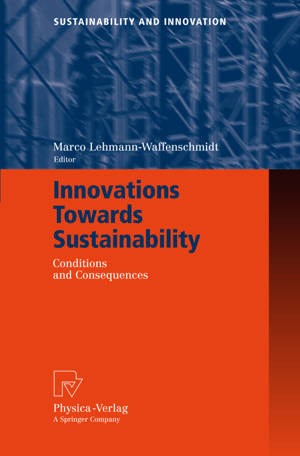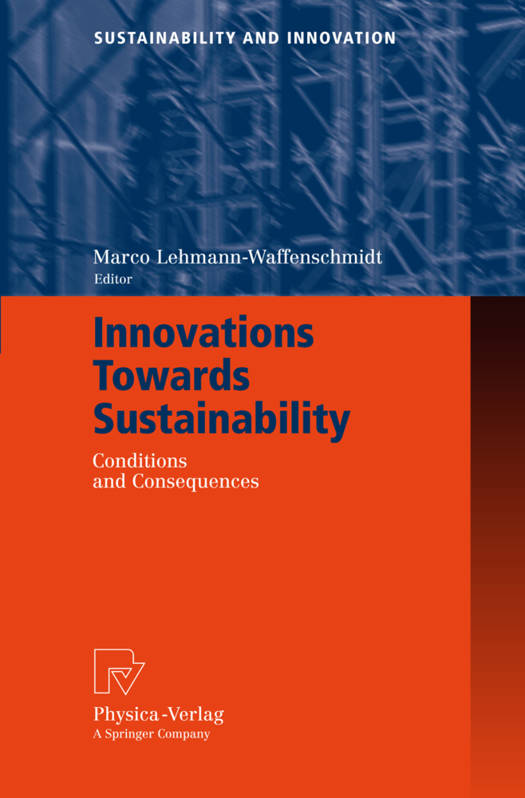
- Afhalen na 1 uur in een winkel met voorraad
- Gratis thuislevering in België vanaf € 30
- Ruim aanbod met 7 miljoen producten
- Afhalen na 1 uur in een winkel met voorraad
- Gratis thuislevering in België vanaf € 30
- Ruim aanbod met 7 miljoen producten
Zoeken
Innovations Towards Sustainability
Conditions and Consequences
€ 105,45
+ 210 punten
Omschrijving
In 1999, the German federal ministry of education and research (BMBF) decided to include two new priorities in its environmental research policy portfolio. One was concerning socio-ecological research aiming at a better understandingofthe socialdimensionofthe sustainabilitytriadandthe other onewasoninnovationorientedresearchaiming atabetter understandinghow companies and public authorities can in?uence innovation activities towards the sustainability objectives. The latter priority led to two new programme lines, one targeting at the company level and the other one targeting at the publicpolicylevelundertheheadlineof"frameworkconditionsforinnovations towards sustainable development"(RIW). The projects funded under the RIW programme were analysing the - tential innovation impact of environmental policy measures on the one hand and the sustainability impact of other policies, such as innovation policy, on the other hand. The design of the RIW programme included in addition an international outreach dimension with the organisation of international c- ferences as well as the establishment of collaboration platforms among the funded projects in order to allow for more general conclusions. The RIW programme followed the BMBF tradition to foster multi- or interdisciplinary cooperation, notablyinvolvingacademicsfromeconomics, policysciences, and law.
Specificaties
Betrokkenen
- Uitgeverij:
Inhoud
- Aantal bladzijden:
- 216
- Taal:
- Engels
- Reeks:
Eigenschappen
- Productcode (EAN):
- 9783790816495
- Verschijningsdatum:
- 6/09/2007
- Uitvoering:
- Paperback
- Formaat:
- Trade paperback (VS)
- Afmetingen:
- 156 mm x 234 mm
- Gewicht:
- 331 g

Alleen bij Standaard Boekhandel
+ 210 punten op je klantenkaart van Standaard Boekhandel
Beoordelingen
We publiceren alleen reviews die voldoen aan de voorwaarden voor reviews. Bekijk onze voorwaarden voor reviews.










